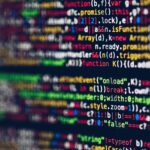Absolutely, hands-on experience is often a crucial component of studying AI abroad. Many universities offering AI programs abroad recognize the importance of practical application and provide various opportunities for students to gain real-world experience through internships, research projects, and other experiential learning opportunities. Here’s a more detailed look at the types of hands-on experiences typically available:
- Internships: Universities often have partnerships with industry-leading companies, startups, research institutions, and governmental organizations that offer internships specifically tailored to AI students. These internships provide valuable exposure to the practical application of AI technologies in different fields such as healthcare, finance, robotics, and more. Students may work on projects related to machine learning, natural language processing, computer vision, or AI ethics, gaining insights into industry practices and challenges.
- Research Projects: Many AI programs abroad emphasize research as a core aspect of their curriculum. Students have the opportunity to collaborate with faculty members on cutting-edge research projects within the university’s AI labs or research centers. These projects may involve developing new AI algorithms, conducting experiments, analyzing data, and publishing research papers in collaboration with professors. Engaging in research not only enhances students’ understanding of AI concepts but also provides valuable experience in problem-solving and critical thinking.
- Industry Collaborations: Universities often foster collaborations with industry partners to provide students with hands-on experience in real-world AI applications. These collaborations may involve joint research projects, consultancy work, or participation in industry-sponsored competitions and challenges. Students may have the opportunity to work on industry-driven projects, gaining practical skills and insights into the current trends and challenges facing the AI industry.
- Startup Incubators: Some universities have startup incubators or entrepreneurship programs that focus on fostering innovation in AI and technology. Students interested in entrepreneurship can participate in these programs to develop their own AI-based startup ideas, receive mentorship from industry experts, and gain hands-on experience in building and scaling AI-driven products and services.
- Hackathons and Workshops: Universities often organize hackathons, workshops, and coding competitions focused on AI and machine learning. These events provide students with opportunities to collaborate with peers, solve real-world problems, and showcase their skills to industry professionals. Participating in hackathons can be an excellent way for students to apply their theoretical knowledge to practical challenges and build their portfolios.
Overall, studying AI abroad offers a rich array of opportunities for hands-on experience, allowing students to develop practical skills, build industry connections, and prepare for successful careers in the rapidly evolving field of artificial intelligence.




